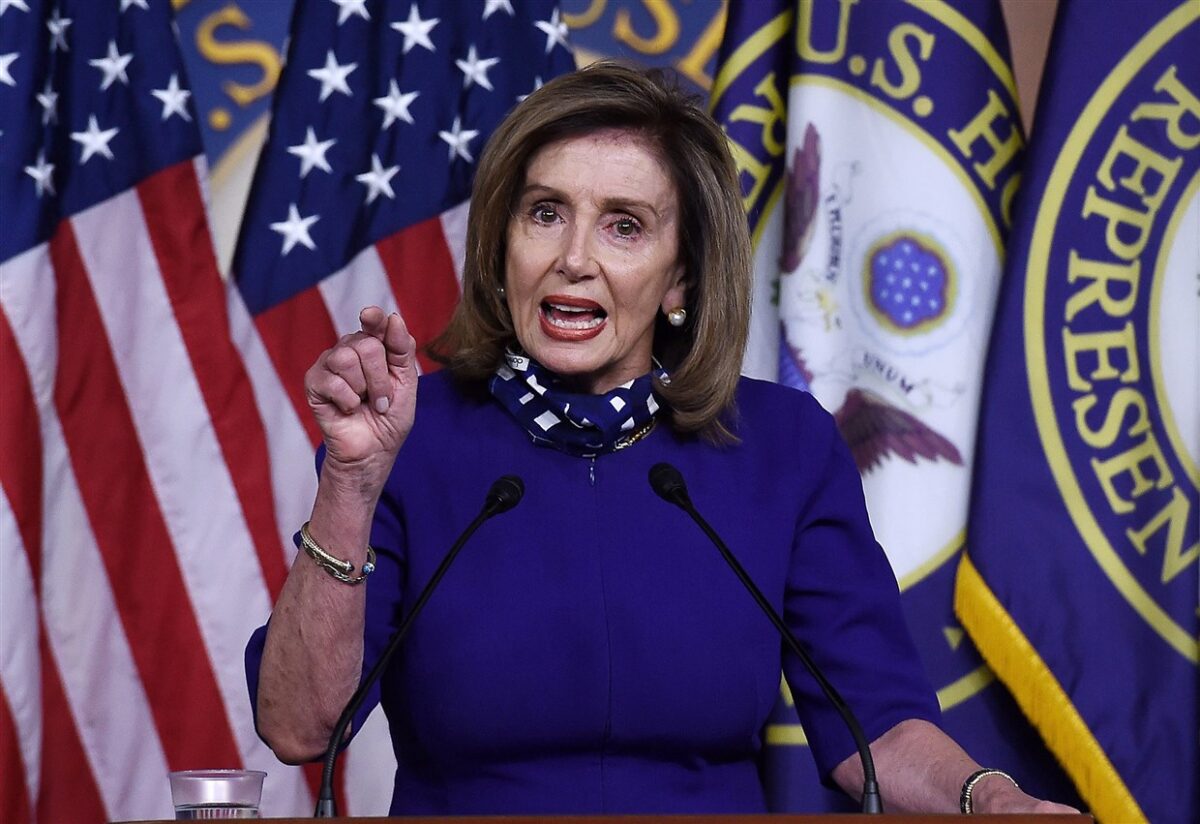By Glynn Wilson –
After working late into the night on Friday, the House passed a $1.9 trillion pandemic stimulus bill called the American Rescue Plan advocated by President Joe Biden by a party-line vote of 219 to 212, including an increase in the federal minimum wage to $15 per hour by 2025.
The bill — which may be dead on arrival in the Senate because the increase in the minimum wage may be disqualified under budget reconciliation rules bypassing a filibuster — is an early victory for the new president and provides a $1,400 direct payment to individuals earning up to $75,000 a year and to couples earning up to $150,000. It also expands a weekly federal unemployment benefit that is set to lapse in mid-March, increasing the payments to $400 a week from $300 and extending them through the end of August.
It provides more than $50 billion for vaccine distribution, testing and tracing. It also increases the child tax credit and allocates nearly $200 billion to primary and secondary schools and $350 billion to state, local and tribal governments.
Two Democrats — Jared Golden of Maine and Kurt Schrader of Oregon — voted against the bill along with every Republican, who argued the legislation was too expensive and broad.
“We believe this is something that meets the moment,” said Congressman John Yarmuth of Kentucky, chairman of the Budget Committee, calling the legislation “an incredible piece of work that deals with the pandemic in all of its manifestations and in a way that will be truly effective.”
Using a fast-track budget process known as reconciliation to shield it from a Senate filibuster and the required 60 votes to pass, the Democrats rammed the package through in hopes their Senate colleagues can find a way to get it through with a simple majority vote in spite of a ruling by the Senate parliamentarian saying the minimum wage provision doesn’t qualify.
If the Senate can find the votes to pass it, it will most likely face changes and have to be sent back to the House for a final vote anyway, probably without the minimum wage increase, although Senate Majority Leader Chuck Schumer of New York indicated he is trying to find a way to preserve it, maybe by punishing companies in the tax code which refuse to pay at least $15 an hour.
House Speaker Nancy Pelosi of California said Democrats preserved the wage increase to send a message about its importance, even if it ultimately had to be removed from the final bill.
“It’s a value, this is a priority, and we will get it done, but let’s not be distracted from what is happening in this legislation,” Pelosi said. “This is a spectacular piece of legislation. While the Senate has prevented us temporarily from passing one aspect of it, let us not be distracted from what is in here, because it is a great bill.”
Senator Ron Wyden of Oregon, the chairman of the Finance Committee, said the still-evolving proposal would impose an escalating tax on the payrolls of large corporations, starting at 5 percent, if any of the companies’ workers earned less than a certain hourly wage. It would include what Wyden called “safeguards” to prevent companies from laying off workers and replacing them with contract employees to avoid the tax.
“While conversations are continuing, I believe this ‘Plan B’ provides us a path to move forward and get this done through the reconciliation process,” Wyden said in a statement.
Elizabeth MacDonough, the Senate parliamentarian, advised senators on Thursday that the legislation violated the strict rules that limit what can be included in a reconciliation bill, opening the door for Republicans to demand that the minimum wage increase be cut. That caused outrage among progressive activists and more liberal members of Congress, who called for Democratic leaders now in the majority to overrule or even fire MacDonough.
It’s not clear that the president would support that, according to New York Times sources, who say Biden wants them to find another way to justify the simple majority vote as having a direct impact on federal spending and revenue.
“While I don’t want to ignore the tax being a factor, I also know that a tax break is just not a replacement for a $15 minimum wage,” Representative Alexandria Ocasio-Cortez, Democrat of New York, told reporters on Friday. “It sets the stage for how effective we’ll be for the rest of the term, so the earlier we can make these fixes, the more we can change people’s lives.”
Some pro-business groups dismissed the idea of a tax penalty and called on Democrats to work with Republicans and industry groups to draft a compromise bill to raise the minimum wage to something less than $15 an hour, and some Republicans have offered their own proposals to raise the minimum wage.
A plan from Senators Mitt Romney of Utah and Tom Cotton of Arkansas would gradually raise it to $10 over four years. On Friday, Senator Josh Hawley, Republican of Missouri, proposed applying the $15 increase championed by Democrats only to businesses with annual revenues of more than $1 billion.
If Democrats cannot find a way to include the minimum wage increase in the legislation, the stimulus package could lose some support from progressives in the House, although Pelosi said the compromise bill would “absolutely” pass anyway because of its importance to people across the country, many still struggling economically with the coronavirus pandemic still raging across the land.
On the eve of the legislation’s passage, House Majority Leader Steny Hoyer of Greenbelt, Maryland made the case on the House floor.
“When the pandemic began this time last year, Congress took immediate action to enact four bipartisan pieces of legislation to protect Americans’ health and mitigate the economic crisis that COVID-19 precipitated. However, it became clear that the economic challenges facing American businesses and workers were so severe that additional relief would soon be required,” Hoyer said. “While House Democrats passed additional legislation to provide that desperately needed aid, the Republican Senate chose to hit ‘pause’ and the American people were forced to deal with these twin crises on their own. During that time, emergency unemployment assistance lapsed, businesses and schools were not able to reopen for months, and tens of millions were left unable to pay rent, mortgages, and other expenses.
“Finally, in December, we were able to reach bipartisan agreement on a limited package of COVID-19 relief to meet some of those needs. But, as Democrats said at the time, it was merely a down payment on what was necessary to defeat the virus and rescue our economy. The American people have been calling out for help from their government, and that is what president Biden’s ‘American Rescue Plan’ will provide: real and substantial help,” he said.
“Today, there are 10 million more Americans out of work than there were a year ago, before the pandemic began to affect our economy. While we began to see a modest jobs recovery after the initial drop last spring, that recovery has slowed and stalled. There are now more than 19 million Americans receiving unemployment benefits, and these are predominantly women and lower income workers already struggling to get by. This is a situation that calls for bold action. Now is not the time for small actions or another ‘pause.’ The American Rescue Plan meets this moment. It will expand vaccines and testing. It will keep families in their homes and ensure they can put food on their table. It will help schools reopen safely, because in-person learning is essential. It will help small businesses keep their doors open,” he added.
“History will record who, in this moment, stood for rescue and recovery – or who for ‘pause.’ Americans will remember. I urge Republicans to join us, to listen to the American people, and make this a bipartisan endeavor. The American people need the assistance that the American Rescue Plan provides.”
Of course not one Republican voted for the bill.















I am so not surprised that even some Democrats have voiced opposition to the minimum wage increase for a variety of bogus reasons. Congressmen work -on average-less than 3 days a week; make well over $15/hour themselves; take every available excuse for “vacation,” “break,” or whatever; collect immediate pensions; have socialized medicine; but, apparently none of this is good enough for the taxpayers that actually pay their salaries. Yet, we keep electing them?